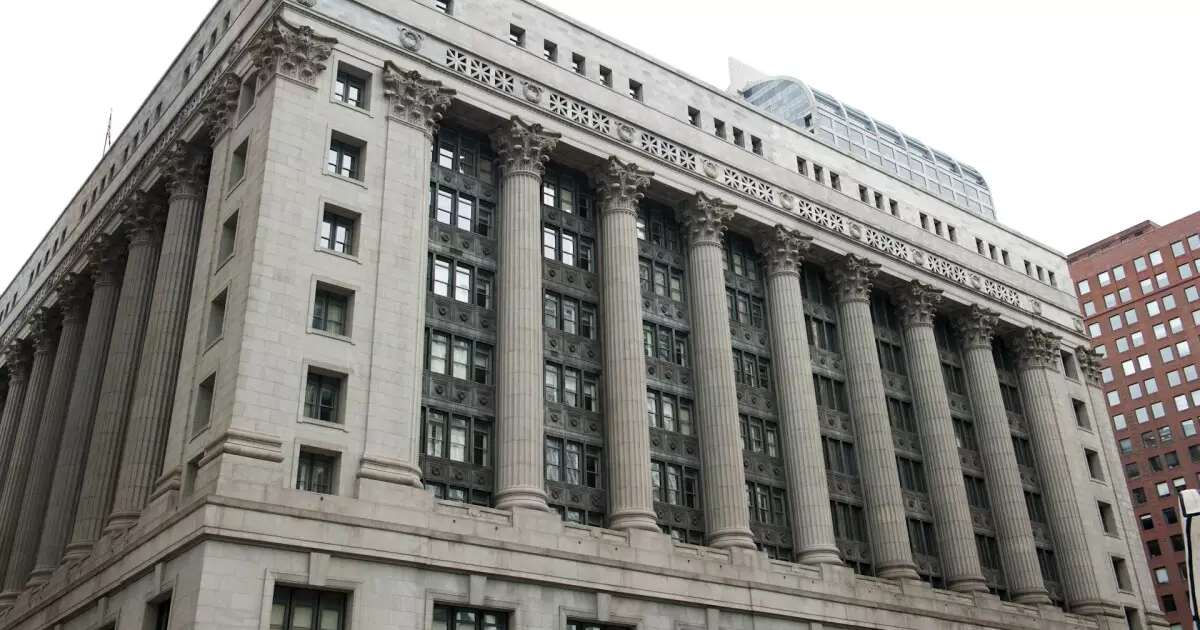In a significant move that underscores the tensions between local government branches, the Chicago City Council recently delivered a staunch denunciation of Mayor Brandon Johnson’s fiscal planning for 2025. The Council decisively dismissed a proposal for a $300 million increase in property taxes that Johnson argued was essential to address a staggering $982 million budget shortfall. This swift, unanimous vote—occurring at a special meeting devoid of debate—serves as a telling indicator of the political landscape in Chicago. The immediate ramifications of this rejection raise critical questions about the city’s financial health, governance, and future budget strategies.
Complicating matters for the Johnson administration, Kroll Bond Rating Agency (KBRA) placed Chicago’s general obligation bond rating on “Watch Downgrade” shortly after the Council’s decision. This move indicates that credit rating agencies are closely examining the dynamics between the Mayor’s office and the City Council. Linda Vanderperre, Senior Director at KBRA, emphasized the need for collaboration in identifying alternative budget-balancing solutions before the deadline of December 31, 2024. This situation highlights a growing concern: the delicate balance between fiscal responsibility as demanded by rating agencies and the political realities that local officials face.
Financial experts such as Howard Cure have pointed out that the focus on a property tax increase, while significant, may overshadow more pressing issues impacting the city’s fiscal stability. Cure notes that the root problems—particularly substantial pension obligations—pose a greater risk to Chicago’s credit ratings than the proposed tax hikes alone. The city’s obligations to underfunded pension systems, coupled with an increasing burden of fixed costs, create an environment where immediate relief through tax increases may not adequately address the underlying fiscal challenges.
In response to these dire circumstances, the Civic Federation of Chicago, a non-partisan watchdog, has proffered a plethora of revenue-enhancing strategies that extend beyond the purview of property taxes. Among these are suggestions for a citywide income tax, a commuter tax, and various adjustments to existing fees—including those levied on rideshare services, liquor sales, and even garbage collection. These alternatives underscore a pressing need for innovative thinking in urban fiscal management, particularly in a city grappling with entrenched economic disparities.
While these alternatives may provide a fresh approach, many require legislative changes at the state level. This complicates the situation further, as local officials must navigate broader political landscapes to obtain the necessary regulatory adjustments. Meanwhile, the urgency for short-term fixes and the potential for cuts in public services loom large over discussions—especially in departments like public health, where staffing shortages are already a significant burden.
The implications of Chicago’s fiscal management extend well beyond city limits, particularly when considering the financial landscape of the state of Illinois. With a $3 billion deficit already plaguing state finances, concerns arise about how state-level budgetary decisions will affect funding for local municipalities. Will the state seek to balance its budget by cutting back on aid for cities like Chicago? This uncertainty adds another layer of complexity to the fiscal planning that the Johnson administration must undertake.
Furthermore, the potential impact of federal policy changes after the upcoming elections adds urgency to the city’s financial deliberations. Lawmakers may attempt to reclaim unspent pandemic relief funds, leaving local governments in precarious positions. Such unpredictability necessitates a robust strategy from the Johnson administration, especially in light of the inflexible labor market for healthcare professionals and the challenges posed by the city’s policing reform mandates.
The Chicago City Council’s outright rejection of the Mayor’s proposed property tax increase is a clear signal of the complex interplay between fiscal responsibility, governance, and political maneuvering. With critical credit ratings hanging in the balance and various pressures from state and federal governance looming, Chicago must find a path forward that prioritizes sound financial planning while addressing the realities of its citizen’s needs. As the leadership navigates this complicated landscape, the emphasis will remain on collaborative approaches that can foster fiscal stability without sacrificing public services. The coming months will be crucial for determining how the city reconciles its fiscal goals with the pressing demands of governance.

